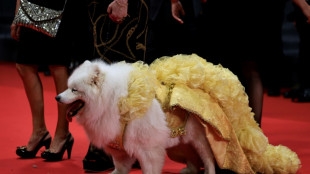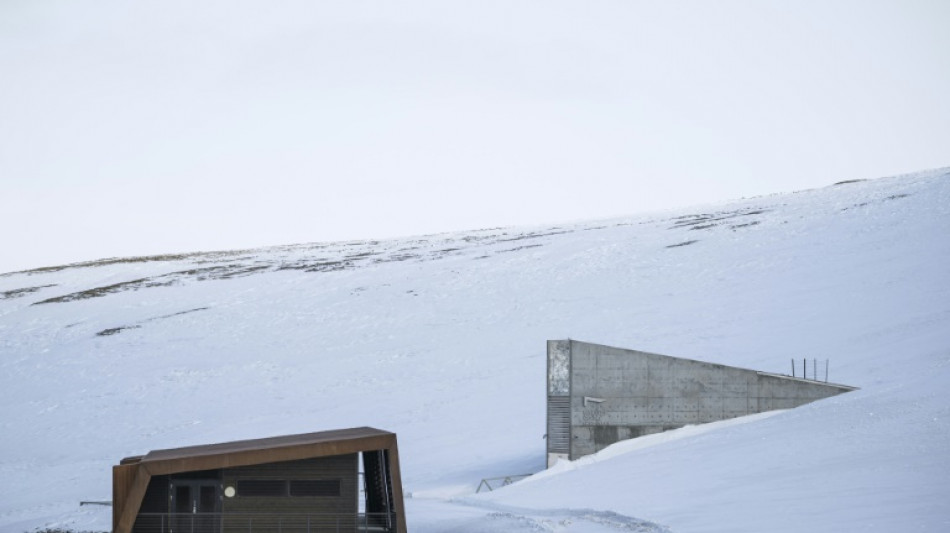
-
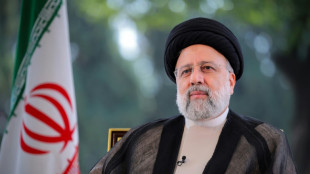 Iran mourns president Raisi's death in helicopter crash
Iran mourns president Raisi's death in helicopter crash
-
Attack on tourists rocks fledgling Afghanistan tourism sector
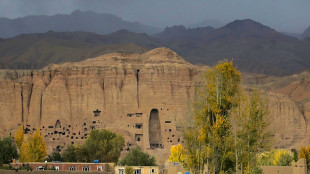
-
 Paralympics should put disability back on global agenda, says IPC chief
Paralympics should put disability back on global agenda, says IPC chief
-
South Africa's top court strikes Zuma from ballot

-
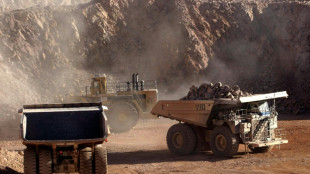 Crunch time looms for BHP's bid buy Anglo American
Crunch time looms for BHP's bid buy Anglo American
-
Kane to face old club Spurs for first time in Seoul

-
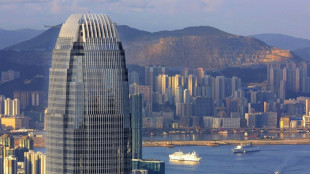 Markets rise as traders cheered by China property plan
Markets rise as traders cheered by China property plan
-
Black farmers in Brazil changing views on coffee production
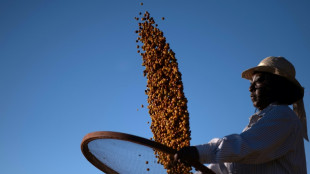
-
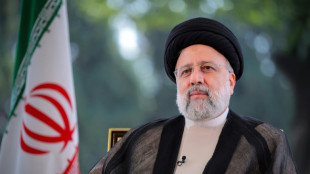 Iran's President Raisi declared dead in helicopter crash
Iran's President Raisi declared dead in helicopter crash
-
Australia police arrest 554 in domestic violence crackdown

-
 South Korea, Britain host AI summit with safety top of agenda
South Korea, Britain host AI summit with safety top of agenda
-
New president Lai vows to defend Taiwan's democracy
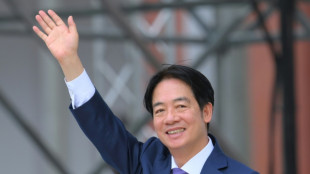
-
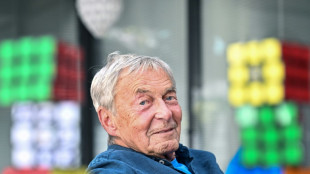 Forever fad: Rubik says his cube 'reminds us why we have hands'
Forever fad: Rubik says his cube 'reminds us why we have hands'
-
Trump eyes witness stand as trial draws to a close

-
 Ryanair annual profit jumps on higher demand, fares
Ryanair annual profit jumps on higher demand, fares
-
High-priced Cummins, Starc face off as IPL enters playoffs

-
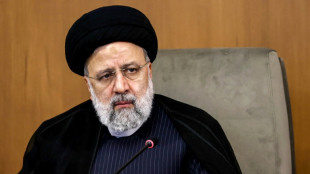 Iran media says President Raisi died in helicopter crash
Iran media says President Raisi died in helicopter crash
-
Dominican Republic President Abinader re-elected to 2nd term
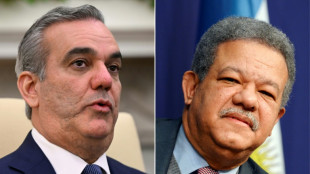
-
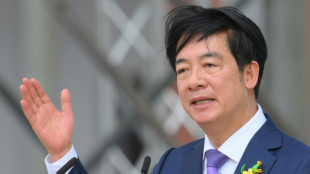 New Taiwan president Lai hails 'glorious' democracy
New Taiwan president Lai hails 'glorious' democracy
-
New Caledonia separatists defy French efforts to unblock roads
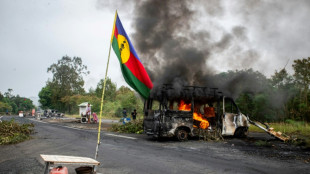
-
 Timberwolves knock out defending champion Nuggets, Pacers oust Knicks
Timberwolves knock out defending champion Nuggets, Pacers oust Knicks
-
Trump biopic hits Cannes Film Festival
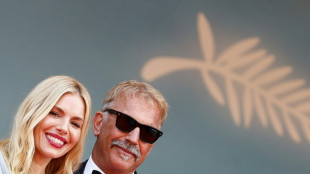
-
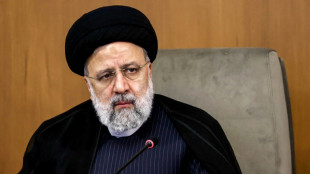 Iran President Raisi's helicopter found, 'no sign of life'
Iran President Raisi's helicopter found, 'no sign of life'
-
Three talking points ahead of 2024 French Open

-
 'Haikyu!!': Comic heroes fuel Japan Olympic volleyball manga mania
'Haikyu!!': Comic heroes fuel Japan Olympic volleyball manga mania
-
Timberwolves rally to knock defending champion Nuggets out of NBA playoffs

-
 London court set to rule on Julian Assange extradition
London court set to rule on Julian Assange extradition
-
Business and Bollywood votes in India election
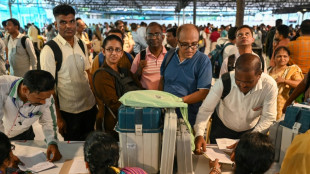
-
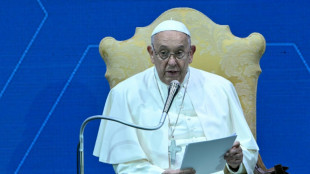 Pope calls anti-migrant attitudes at US border 'madness'
Pope calls anti-migrant attitudes at US border 'madness'
-
Mexico aims to be big economic winner from US-China tensions
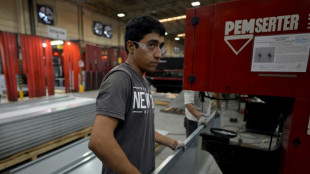
-
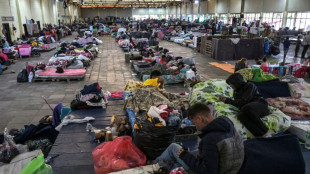 Uncertain future for thousands after deadly Brazil floods
Uncertain future for thousands after deadly Brazil floods
-
Schauffele makes the putt of his life for first major win

-
 Wirtz returns to help unbeaten Leverkusen chase history
Wirtz returns to help unbeaten Leverkusen chase history
-
Search for Iran's President Raisi after helicopter goes missing
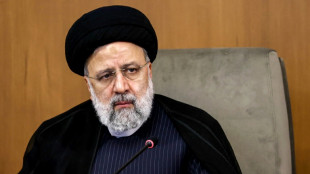
-
 DeChambeau's powerful putting has him excited for US Open
DeChambeau's powerful putting has him excited for US Open
-
Taiwan to swear in new president as China pressure grows
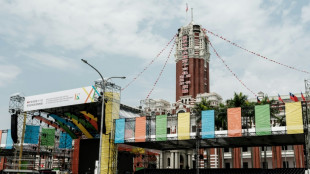
-
 Atalanta can end 61-year wait for trophy in Europa League final
Atalanta can end 61-year wait for trophy in Europa League final
-
Schauffele birdies final hole to capture PGA for first major win

-
 Guardiola casts doubt over long-term Man City future
Guardiola casts doubt over long-term Man City future
-
Hollywood icons Costner and Demi Moore make Cannes comeback
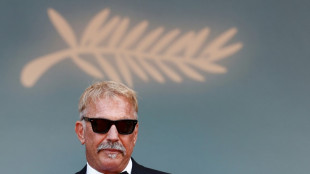
-
 Pacers shoot down Knicks to reach NBA Eastern Conference finals
Pacers shoot down Knicks to reach NBA Eastern Conference finals
-
Schauffele birdies final hole, captures first major at PGA Championship

-
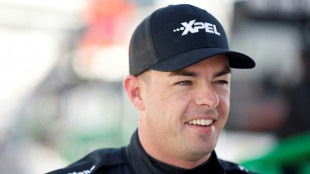 McLaughlin powers to Indy 500 pole in all-Penske front row
McLaughlin powers to Indy 500 pole in all-Penske front row
-
Monaco footballer tapes over LGBTQ badge

-
 Korda wins sixth LPGA title of year with win at Liberty National
Korda wins sixth LPGA title of year with win at Liberty National
-
Pacers put on shooting show to down Knicks, reach NBA Eastern Conference finals

-
 US envoy touts 'potential' of Israel-Saudi deal in Netanyahu talks
US envoy touts 'potential' of Israel-Saudi deal in Netanyahu talks
-
Dominicans vote for president in poll overshadowed by Haiti crisis
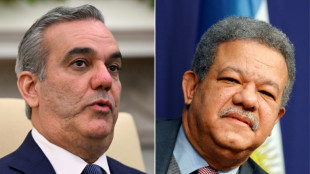
-
 Brest secure Champions League qualification, PSG win without Mbappe
Brest secure Champions League qualification, PSG win without Mbappe
-
Mbappe absent as PSG win final Ligue 1 game


Scientists win World Food Prize for work on Global Seed Vault
Scientists Geoffrey Hawtin and Cary Fowler, who on Thursday received the prestigious World Food Prize for "their work to preserve the world's heritage of seeds", are on a mission.
Their vocation is to safeguard as many seeds as possible so that one day the world can benefit from their genetic characteristics. Their work is all in the name of protecting global food security.
Hawtin and Fowler helped set up a world reserve of seeds dug into a glacier on the Norwegian archipelago Svalbard in the Arctic -- where 1.25 million samples are now stored for preservation in the cold.
It was for this work they were named the 2024 winners of the World Food Prize, awarded to individuals who have increased the quality, quantity, or availability of food worldwide.
The goal is always to conserve as many agricultural seeds as possible, 75-year-old British-Canadian agronomist Hawtin told AFP.
"What actually changed a little bit since it opened in 2008 is the material going into it," he said.
After mainly collecting seeds from "domesticated" plants like wheat and barley, the reserve is now welcoming more wild species that are more or less related to cultivated plants.
The latter mainly "have genes that are particularly interesting with climate change", he said.
- Countless experiments -
The domestication of plants is "the result of thousands of years and countless experiments," said Fowler, a 74-year-old American seed specialist and the US Special Envoy for Global Food Security.
It would be "arrogant" to think that current genetic engineering tools, even the most sophisticated, could reproduce those experiments, he added.
That would be "a more expensive way of getting the diversity that we already have contained in the seeds in the seed banks".
Hawtin said that while gene editing had a huge role to play, the "problem is what to edit".
"There are tens of thousands, if not more, genes that in some way or another affect the plant's response to just the climate change, which could be heat, which can be cold, which can be drought, which can be flooding," he said.
He said he doubted that even artificial intelligence could allow "the full level of understanding" needed for such an approach.
He nevertheless predicts the rise of digital seed banks where more and more information detailing the genetic characteristics of plants will be stored.
- Saved in Syria -
Both men began their careers in the 1970s.
The aim then was not yet to adapt to climate change but to produce as much wheat, maize and rice as possible.
"There were famines in Ethiopia and in India and, most of the concern then was for filling people's stomachs," Fowler said.
To achieve this, experts at the time recommended concentrating on seeds with the highest yields and making massive use of fertilisers and pesticides.
Since then, they have understood the importance of developing more durable agricultural systems and enlarging the range of crops grown, said Fowler.
As the Special Envoy for Global Food Security, he promotes the use of traditional crops in Africa. Often neglected by research programmes in favour of corn, wheat and rice, they are potentially more nutritious and better adapted to the environment.
Hawtin began his career in the Middle East, meeting with farmers and collecting vegetable seeds in Afghanistan, Ethiopia, Lebanon and Jordan and then cross-referencing them.
Not wanting to just throw them away, he started to keep them.
- Seed banks 'caught in the middle' -
Three decades later, the war in Syria forced the Aleppo seed bank, where the agronomist had once worked, to "evacuate" its samples with urgency.
Many of them went to the Svalbard seed bank.
Some, including vegetable seeds collected by Hawtin and his team, have already been withdrawn from the reserve to join collections in Morocco and Lebanon.
"Two weeks ago, I was in Morocco, and I saw some of that material being planted out in the fields in Morocco and being tested for resistance to drought," Hawtin said.
The fact that the global reserve was used up so quickly leaves the scientists with a hint of bitterness.
"It's like an automobile insurance policy. You never want to be in a situation where you have to use it," Fowler said.
"I'm sorry to say it, but I think there will be more situations of conflicts around the world and of natural disasters with, unfortunately, seed banks getting caught in the middle," he added.
The World Food Prize, worth $500,000, was set up in 1986 by Dr Norman E. Borlaug who was awarded the Nobel Peace Prize in 1970 for his work in global agriculture.
It is presented every year in Iowa, the United States.
I.Meyer--BTB


